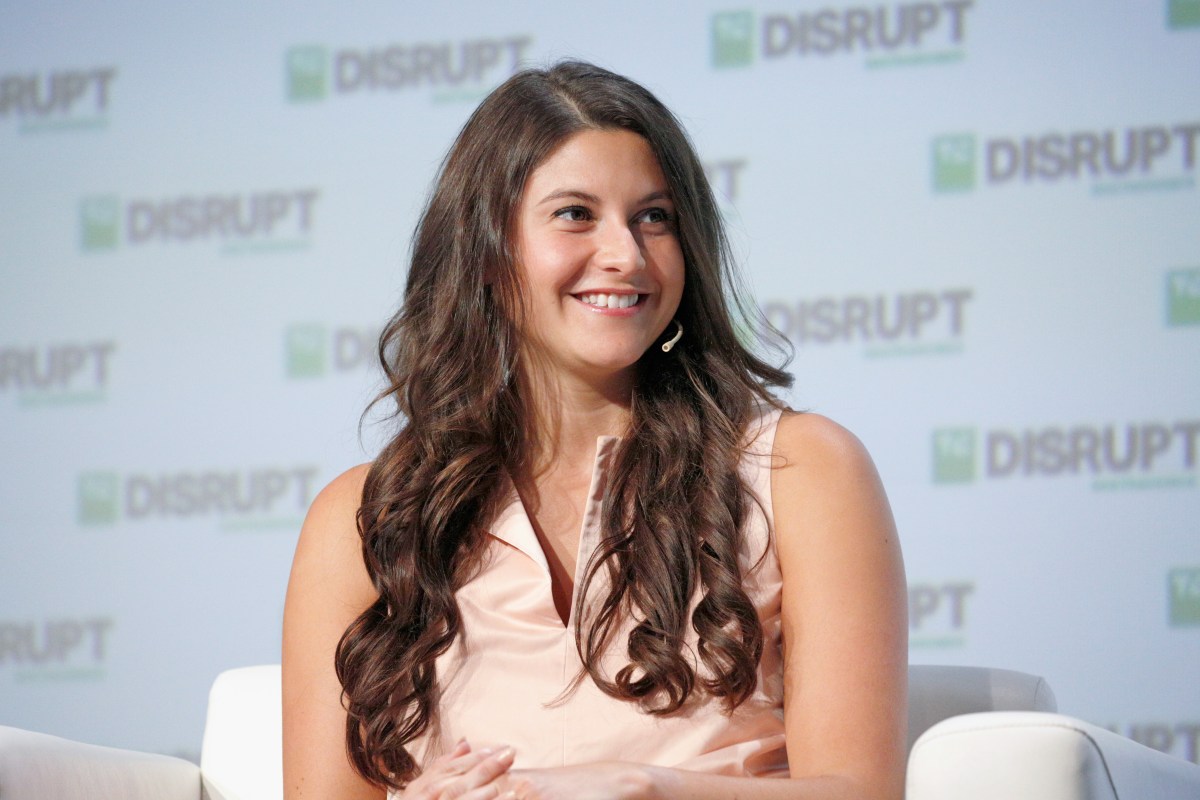[ad_1]
If the crypto investment craze of 2021 could be defined with one investor name, that would be Andreessen Horowitz — or a16z for short. The well-known VC firm has raised over $7.6 billion for its crypto funds.
And yet, crypto isn’t doing so well this year. As TechCrunch’s Jacquelyn Melinek wrote earlier this summer, crypto funding dropped for the fifth consecutive quarter. That’s why we invited a16z General Partner Arianna Simpson at TechCrunch Disrupt to take the pulse of the crypto ecosystem.
“I’ve been in crypto for over 10 years,” Simpson said. “What we’ve seen is that there are very repetitive cycles. And this is by the way not unique to crypto or web3, it happens in the history of technology and continues to happen any time there’s a new form of technology. There’s a lot of kind of boom-and-bust moments. And you can’t expect a space to continue with the same sort of capital investment across all quarters.”
In other words, investment and funding rounds will pick up again at some point in the near future. But it doesn’t mean that founders should wait for crypto to be back in fashion again.
“What we’ve seen is that the pace of technology development and innovation is not correlated with the amount of capital that’s flowing in at a given moment,” she said. “And so you might see a period of a lot of capital entering the space, as obviously we saw in 2021. But then, the subsequent years, when you’re not actually seeing as many funding rounds happen, is when a lot of the actual development work and innovation is actually being created.”
a16z itself hasn’t deployed all its capital in one day. The reason why the VC firm has raised so much money for its crypto funds is that it believes the opportunity is massive. But a16z has deployed less than half of its crypto fund so far.
Earlier this year, a16z announced its first international office in London. Many saw it as a sign that the regulatory environment was too unpredictable in the U.S. and that a16z was looking for another market with a more stable regulatory framework.
“I think the U.S. has — you know, we’re still very much here as well — but we think the U.S. has some work to do to create a regulatory framework that makes founders feel comfortable and like they’re able to actually build great technology products here without worrying about possible repercussions,” Simpson said.
“The lack of specific guidance here in the U.S. is actually pushing legitimate companies offshore, because they actually want to be compliant,” she added later in the conversation.
Given that the overall tech conversation has mostly shifted from crypto to AI, it makes you wonder how opportunistic VC firms like a16z feel about this trend. “Yeah, well, I’m definitely not pivoting to AI,” Simpson said.
“AI is very much by nature a centralizing force. You need a lot of capital, you need a lot of data, and that kind of naturally gravitates towards a more centralized model. Crypto is by nature decentralized, and I think it can really provide a strong counterbalance to some of the centralizing forces of AI,” she added.
“The founders that have been the most successful in web3 or honestly in any space is the founders that ignore the market cycles and remain really focused on the core technology.”
[ad_2]
Source link

